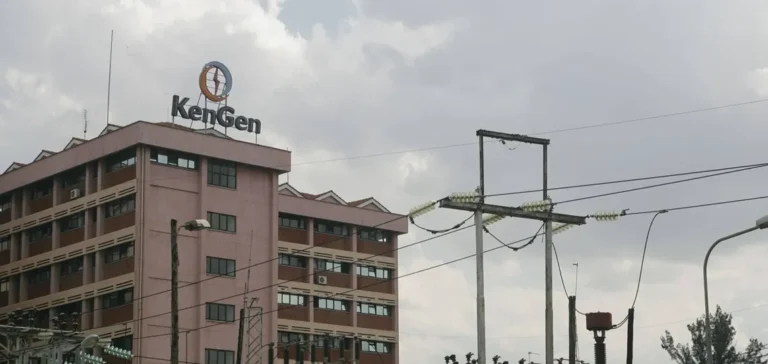Electricity consumption in Kenya has reached an unprecedented peak with a record of 2,362.28 megawatts (MW) on the national grid, highlighting the direct impact of industrial dynamism and rapid urbanisation in the country. This level of demand, never seen before, is attributed to the growth of manufacturing output, the expansion of cities and the rise in domestic consumption, according to Kenya Electricity Generating Company PLC (KenGen).
Geothermal and hydropower plants at the forefront
KenGen’s geothermal plants generated 13,678.35 megawatt-hours (MWh) during the period in question, representing 31.85% of the total volume injected into the grid. The company’s hydropower stations supplied 10,915.93 MWh, accounting for 25.42% of the electricity distributed, according to statistics published by the Energy and Petroleum Regulatory Authority (EPRA). Together, these sources covered more than 57% of the country’s daily production, confirming KenGen’s strategic position in the Kenyan energy sector.
Exceptional performance of key dams
The Kiambere power plant stood out by exceeding expectations by 23.31% with a production of 2,908 MWh. Major hydropower sites such as Gitaru, Kamburu, and Masinga also reinforced the electricity supply, despite significant variations in river flows within the cascade system. According to KenGen, the contribution of hydropower remains essential for stabilising energy costs in the country, with hydro being the least expensive source in the national mix.
Need for investment in transmission and energy outlook
Total daily demand reached 42,943.11 MWh, including electricity generated from thermal and wind sources as well as contributions from interconnections with Uganda and Ethiopia. KenGen points out that the stable supply from local resources, mainly geothermal and hydropower, enabled the network to remain stable without reported load shedding.
However, transmission lines such as Muhoroni-Chemosit and Kisumu-Muhoroni exceeded 120% of their capacity, signalling the urgent need for investment in the electricity grid to keep up with national demand growth. KenGen Managing Director Peter Njenga reaffirmed the goal of delivering an additional 1,500 MW over ten years, exclusively from renewable sources.






















